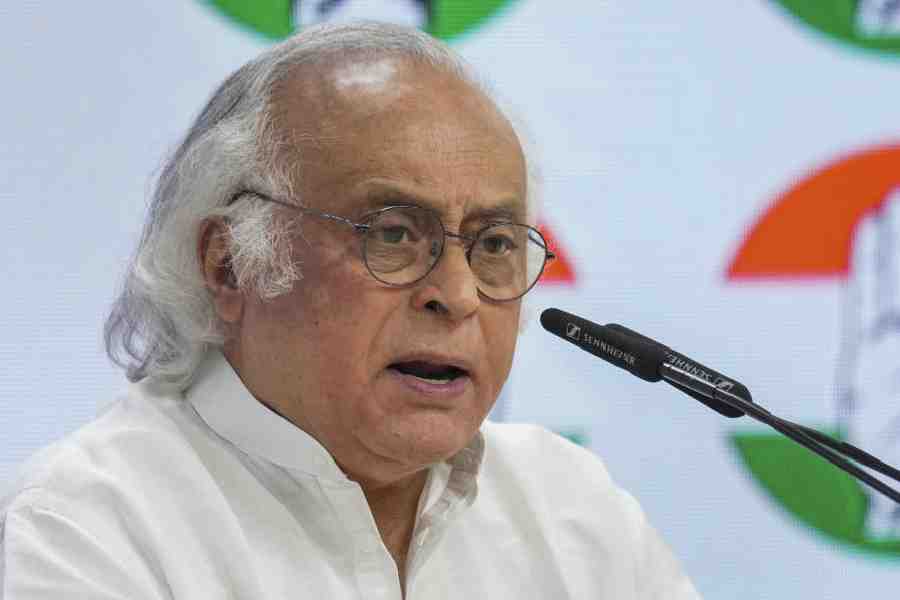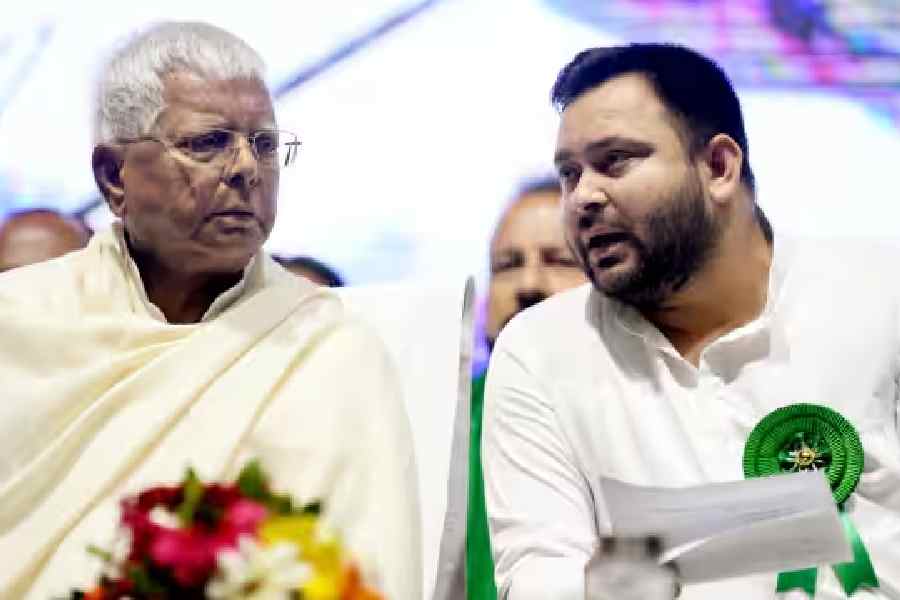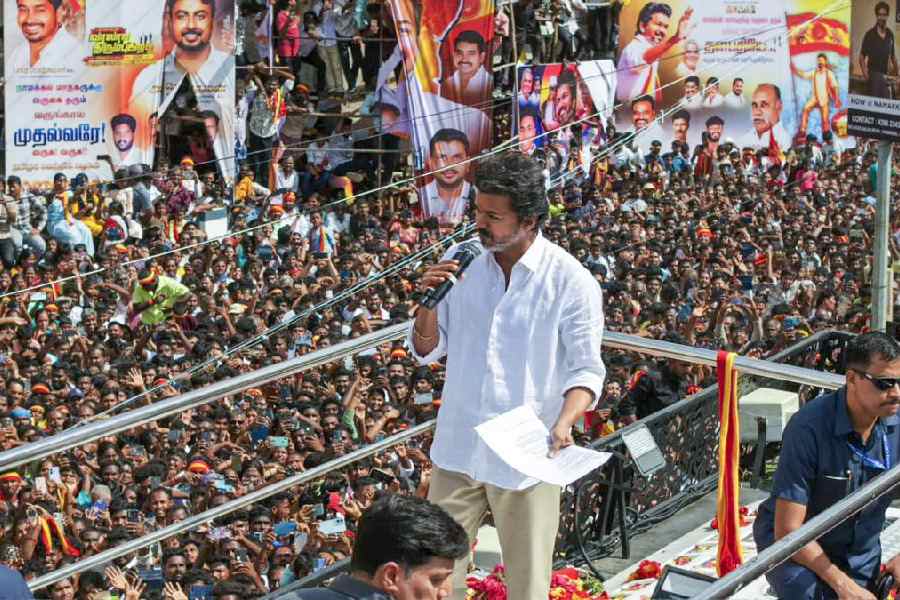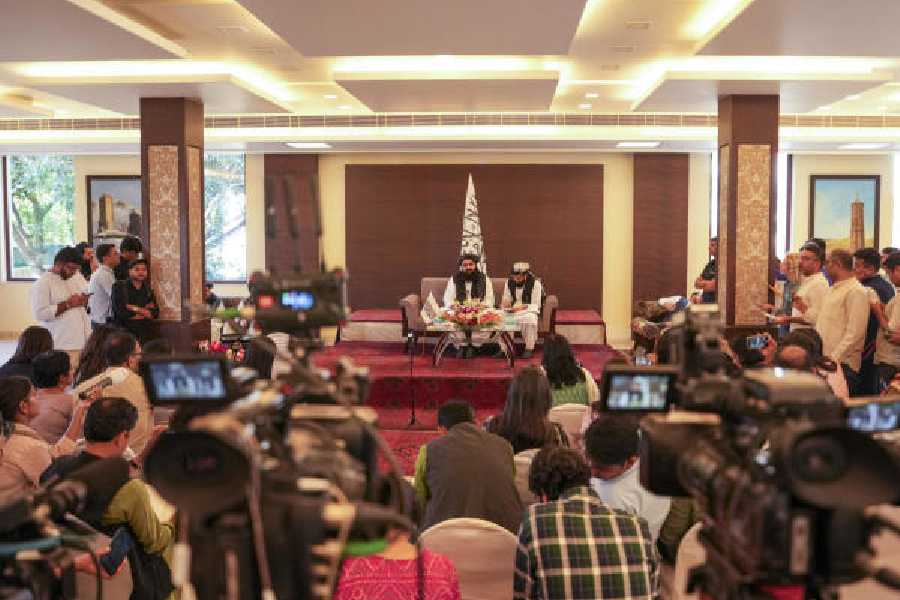 |
| A preparation of Bali yatra in Sonepur. Picture by Sudeep Kumar Kumar Guru |
Balangir, Oct. 8: The ritual of Bali yatra (the festival of sacrifice) is not all about animal sacrifices. It is about shedding human weaknesses and sacrificing evil thoughts. The 15-day yatra, which commenced at Sonepur on Thursday night, will see patanjali astanga yoga being showcased in all its glory among other things.
Sonepur Bali yatra, which centres round the Asta Chandi temples of the town, is a queer blend of music, literature, dance, yantra, mantra, tantra and yoga.
The music is special with the vibrant Solah Bharni percussion in dholak while the vocal is based on raga Maleshree, which the locals of a particular community in Sonepur play. Purandar Barik, who has been playing dholak during the Bali yatra for more than 30 years, said that the music he plays is of a special kind.
“It is a blend of folk and classical music with a tantric overtone. It takes the barua (on whom the deity is said be manifested) from his ordinary consciousness to a state of contemplation and gradually to the state of samadhi. The barua then performs dances according to music that varies from time to time and place to place,” Barik said.
“On different days, times, and places, the festival is known by different names such as Nisha Bali, Navami Bali, Dangua Bali, Gaen Bali and so on. But, what attracts everybody is the Maha Bali on the Vijaya Dasami day,” said researcher Benudhar Pradhan.
Historian Sudam Naik said that the Bali yatra of Sonepur is pure tantra. “The festival here has a history of about 1200 years. Laxmikara, who was the daughter of King Indrabhuti, practiced the tantric practice sahajayana here and she initiated the festival,” said Naik, who has authored several books on Sonepur.
In 1998, the then collector of Sonepur Bisnupada Sethi stopped the festival as some orthodox people demanded the practice of animal sacrifice to continue. Members of some families belonging to the mali community of Sakma village near Binika do the job of the barua. The baruas of the village are however not taking part in the festival these days after a barua was killed during the festival a few years back.
“We don’t feel safe during the festival after the incident,” said a barua. “For the last few years, we have been engaging paid baruas instead of the traditional ones,” said Sonepur sub-collector Ashok Naik, who heads the endowment department.










